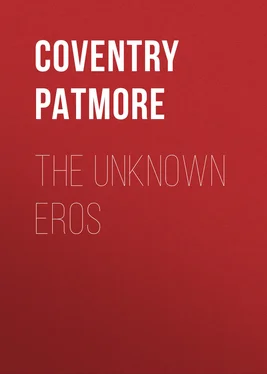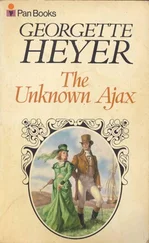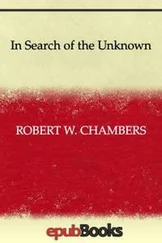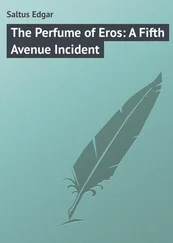Coventry Patmore - The Unknown Eros
Здесь есть возможность читать онлайн «Coventry Patmore - The Unknown Eros» — ознакомительный отрывок электронной книги совершенно бесплатно, а после прочтения отрывка купить полную версию. В некоторых случаях можно слушать аудио, скачать через торрент в формате fb2 и присутствует краткое содержание. Жанр: foreign_poetry, literature_19, Поэзия, foreign_antique, foreign_prose, на английском языке. Описание произведения, (предисловие) а так же отзывы посетителей доступны на портале библиотеки ЛибКат.
- Название:The Unknown Eros
- Автор:
- Жанр:
- Год:неизвестен
- ISBN:нет данных
- Рейтинг книги:4 / 5. Голосов: 1
-
Избранное:Добавить в избранное
- Отзывы:
-
Ваша оценка:
- 80
- 1
- 2
- 3
- 4
- 5
The Unknown Eros: краткое содержание, описание и аннотация
Предлагаем к чтению аннотацию, описание, краткое содержание или предисловие (зависит от того, что написал сам автор книги «The Unknown Eros»). Если вы не нашли необходимую информацию о книге — напишите в комментариях, мы постараемся отыскать её.
The Unknown Eros — читать онлайн ознакомительный отрывок
Ниже представлен текст книги, разбитый по страницам. Система сохранения места последней прочитанной страницы, позволяет с удобством читать онлайн бесплатно книгу «The Unknown Eros», без необходимости каждый раз заново искать на чём Вы остановились. Поставьте закладку, и сможете в любой момент перейти на страницу, на которой закончили чтение.
Интервал:
Закладка:
Coventry Patmore
The Unknown Eros
PREFACE TO THIRD EDITION
To this edition of “The Unknown Eros” are added all the other poems I have written, in what I venture—because it has no other name—to call “catalectic verse.” Nearly all English metres owe their existence as metres to “catalexis,” or pause, for the time of one or more feet, and, as a rule, the position and amount of catalexis are fixed. But the verse in which this volume is written is catalectic par excellence , employing the pause (as it does the rhyme) with freedom only limited by the exigencies of poetic passion. From the time of Drummond of Hawthornden to our own, some of the noblest flights of English poetry have been taken on the wings of this verse; but with ordinary readers it has been more or less discredited by the far greater number of abortive efforts, on the part sometimes of considerable poets, to adapt it to purposes with which it has no expressional correspondence; or to vary it by rhythmical movements which are destructive of its character.
Some persons, unlearned in the subject of metre, have objected to this kind of verse that it is “lawless.” But it has its laws as truly as any other. In its highest order, the lyric or “ode,” it is a tetrameter, the line having the time of eight iambics. When it descends to narrative, or the expression of a less-exalted strain of thought, it becomes a trimeter, having the time of six iambics, or even a dimeter, with the time of four; and it is allowable to vary the tetrameter “ode” by the occasional introduction of passages in either or both of these inferior measures, but not, I think, by the use of any other. The license to rhyme at indefinite intervals is counterbalanced, in the writing of all poets who have employed this metre successfully, by unusual frequency in the recurrence of the same rhyme. For information on the generally overlooked but primarily important function of catalexis in English verse I refer such readers as may be curious about the subject to the Essay printed as an appendix to the later editions of my collected poems.
I do not pretend to have done more than very moderate justice to the exceeding grace and dignity and the inexhaustible expressiveness of which this kind of metre is capable; but I can say that I have never attempted to write in it in the absence of that one justification of and prime qualification for its use, namely, the impulse of some thought that “voluntary moved harmonious numbers.”
COVENTRY PATMORE. HASTINGS, 1890.THE UNKNOWN EROS
“Deliciae meae esse cum filiis hominum.”
PROV. VIII. 31.PROEM
‘Many speak wisely, some inerrably:
Witness the beast who talk’d that should have bray’d,
And Caiaphas that said
Expedient ’twas for all that One should die;
But what avails
When Love’s right accent from their wisdom fails,
And the Truth-criers know not what they cry!
Say, wherefore thou,
As under bondage of some bitter vow,
Warblest no word,
When all the rest are shouting to be heard?
Why leave the fervid running just when Fame
’Gan whispering of thy name
Amongst the hard-pleased Judges of the Course?
Parch’d is thy crystal-flowing source?
Pierce, then, with thought’s steel probe, the trodden ground,
Till passion’s buried floods be found;
Intend thine eye
Into the dim and undiscover’d sky
Whose lustres are the pulsings of the heart,
And promptly, as thy trade is, watch to chart
The lonely suns, the mystic hazes and throng’d sparkles bright
That, named and number’d right
In sweet, transpicuous words, shall glow alway
With Love’s three-stranded ray,
Red wrath, compassion golden, lazuline delight.’
Thus, in reproof of my despondency,
My Mentor; and thus I:
O, season strange for song!
And yet some timely power persuades my lips.
Is’t England’s parting soul that nerves my tongue,
As other Kingdoms, nearing their eclipse,
Have, in their latest bards, uplifted strong
The voice that was their voice in earlier days?
Is it her sudden, loud and piercing cry,
The note which those that seem too weak to sigh
Will sometimes utter just before they die?
Lo, weary of the greatness of her ways,
There lies my Land, with hasty pulse and hard,
Her ancient beauty marr’d,
And, in her cold and aimless roving sight,
Horror of light;
Sole vigour left in her last lethargy,
Save when, at bidding of some dreadful breath,
The rising death
Rolls up with force;
And then the furiously gibbering corse
Shakes, panglessly convuls’d, and sightless stares,
Whilst one Physician pours in rousing wines,
One anodynes,
And one declares
That nothing ails it but the pains of growth.
My last look loth
Is taken; and I turn, with the relief
Of knowing that my life-long hope and grief
Are surely vain,
To that unshapen time to come, when She,
A dim, heroic Nation long since dead,
The foulness of her agony forgot,
Shall all benignly shed
Through ages vast
The ghostly grace of her transfigured past
Over the present, harass’d and forlorn,
Of nations yet unborn;
And this shall be the lot
Of those who, in the bird-voice and the blast
Of her omniloquent tongue,
Have truly sung
Or greatly said,
To shew as one
With those who have best done,
And be as rays,
Thro’ the still altering world, around her changeless head.
Therefore no ’plaint be mine
Of listeners none,
No hope of render’d use or proud reward,
In hasty times and hard;
But chants as of a lonely thrush’s throat
At latest eve,
That does in each calm note
Both joy and grieve;
Notes few and strong and fine,
Gilt with sweet day’s decline,
And sad with promise of a different sun.
’Mid the loud concert harsh
Of this fog-folded marsh,
To me, else dumb,
Uranian Clearness, come!
Give me to breathe in peace and in surprise
The light-thrill’d ether of your rarest skies,
Till inmost absolution start
The welling in the grateful eyes,
The heaving in the heart.
Winnow with sighs
And wash away
With tears the dust and stain of clay,
Till all the Song be Thine, as beautiful as Morn,
Bedeck’d with shining clouds of scorn;
And Thou, Inspirer, deign to brood
O’er the delighted words, and call them Very Good.
This grant, Clear Spirit; and grant that I remain
Content to ask unlikely gifts in vain.
BOOK I
I. SAINT VALENTINE’S DAY
Well dost thou, Love, thy solemn Feast to hold
In vestal February;
Not rather choosing out some rosy day
From the rich coronet of the coming May,
When all things meet to marry!
O, quick, praevernal Power
That signall’st punctual through the sleepy mould
The Snowdrop’s time to flower,
Fair as the rash oath of virginity
Which is first-love’s first cry;
O, Baby Spring,
That flutter’st sudden ’neath the breast of Earth
A month before the birth;
Whence is the peaceful poignancy,
The joy contrite,
Sadder than sorrow, sweeter than delight,
That burthens now the breath of everything,
Though each one sighs as if to each alone
The cherish’d pang were known?
At dusk of dawn, on his dark spray apart,
With it the Blackbird breaks the young Day’s heart;
In evening’s hush
About it talks the heavenly-minded Thrush;
The hill with like remorse
Smiles to the Sun’s smile in his westering course;
The fisher’s drooping skiff
In yonder sheltering bay;
The choughs that call about the shining cliff;
The children, noisy in the setting ray;
Own the sweet season, each thing as it may;
Thoughts of strange kindness and forgotten peace
In me increase;
And tears arise
Within my happy, happy Mistress’ eyes,
And, lo, her lips, averted from my kiss,
Ask from Love’s bounty, ah, much more than bliss!
Is’t the sequester’d and exceeding sweet
Of dear Desire electing his defeat?
Is’t the waked Earth now to yon purpling cope
Uttering first-love’s first cry,
Vainly renouncing, with a Seraph’s sigh,
Love’s natural hope?
Fair-meaning Earth, foredoom’d to perjury!
Behold, all-amorous May,
With roses heap’d upon her laughing brows,
Avoids thee of thy vows!
Were it for thee, with her warm bosom near,
To abide the sharpness of the Seraph’s sphere?
Forget thy foolish words;
Go to her summons gay,
Thy heart with dead, wing’d Innocencies fill’d,
Ev’n as a nest with birds
After the old ones by the hawk are kill’d.
Well dost thou, Love, to celebrate
The noon of thy soft ecstasy,
Or e’er it be too late,
Or e’er the Snowdrop die!
Интервал:
Закладка:
Похожие книги на «The Unknown Eros»
Представляем Вашему вниманию похожие книги на «The Unknown Eros» списком для выбора. Мы отобрали схожую по названию и смыслу литературу в надежде предоставить читателям больше вариантов отыскать новые, интересные, ещё непрочитанные произведения.
Обсуждение, отзывы о книге «The Unknown Eros» и просто собственные мнения читателей. Оставьте ваши комментарии, напишите, что Вы думаете о произведении, его смысле или главных героях. Укажите что конкретно понравилось, а что нет, и почему Вы так считаете.












